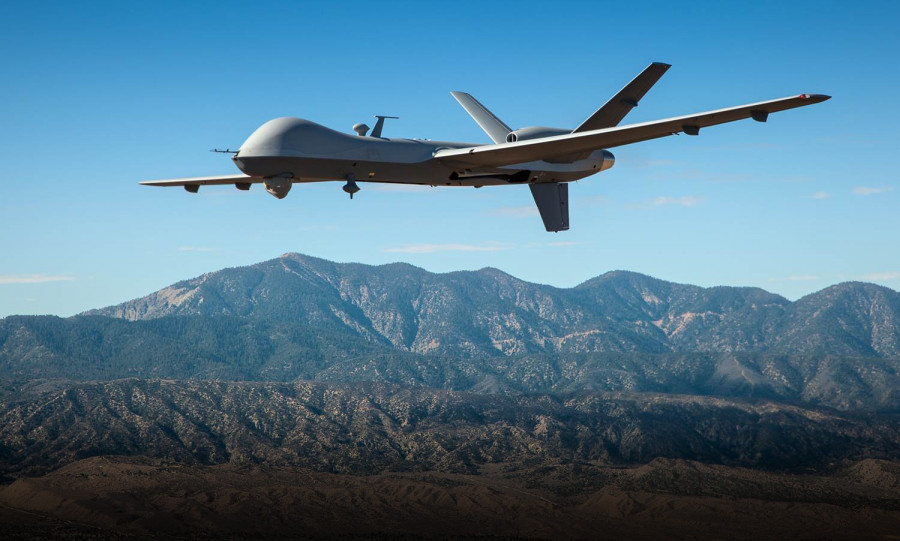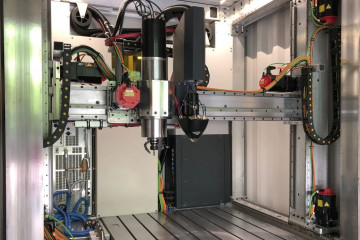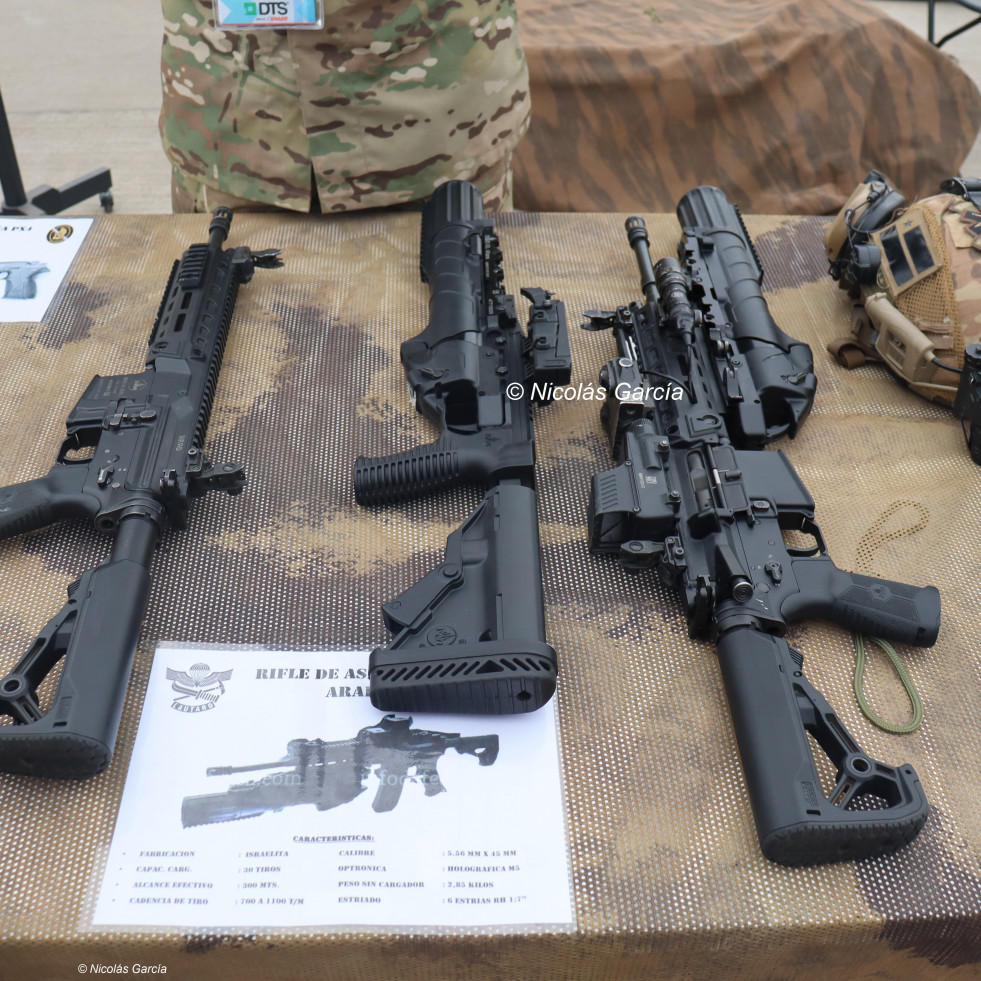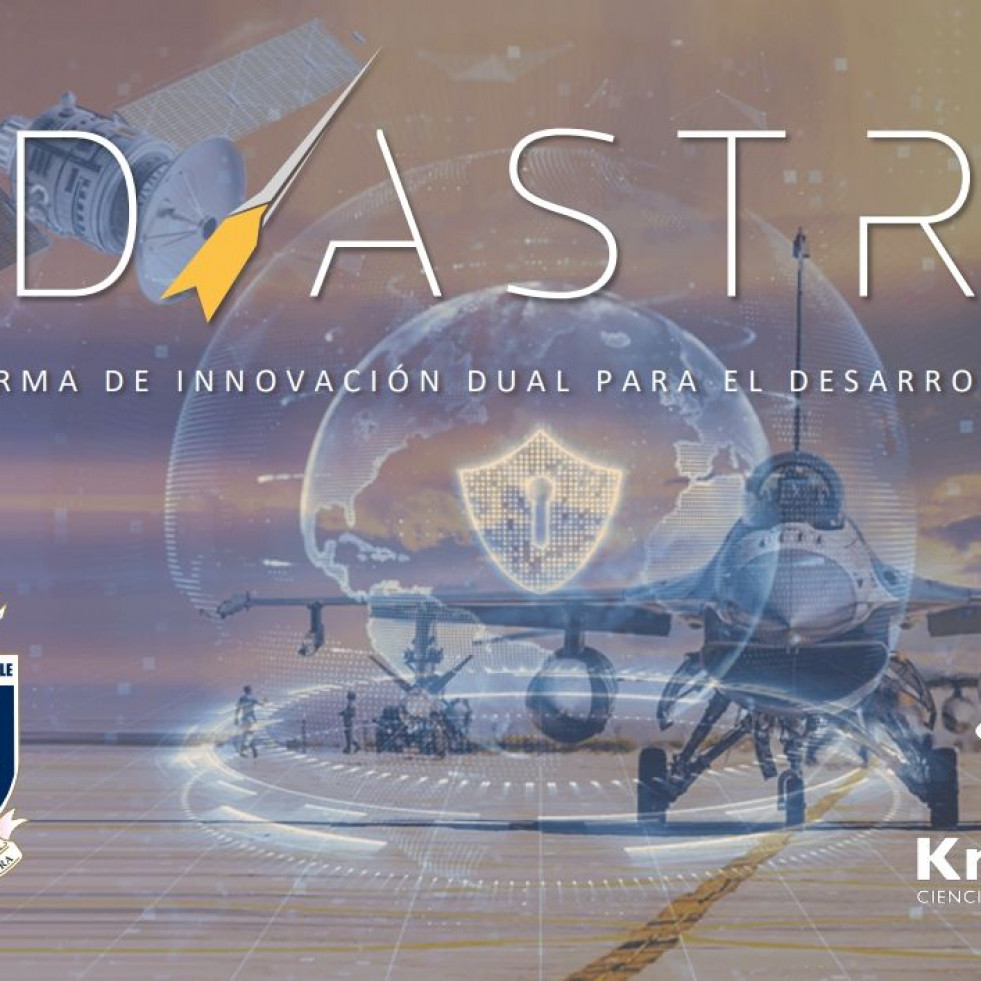Future Spanish MALE Reaper to fly at UNVEX S&D 2018

The remotely-piloted aircraft system Reaper, designed by General Atomics, is set to be one of the highlights at the upcoming European RPAS summit UNVEX Security & Defense 2018, which will take place between May 29-31 in the northwestern Spanish city of León.
Specifically, a French Air Force Reaper will fly over the fair on the second day and transmit live footage that will be shown to attendees on screens located at the Spanish Air Force’s Virgen del Camino base.
The flight represents a significant milestone, as it will be the first time an RPAS with these features takes part in a joint exercise between two European countries.
The operation’s details were broken down during Unvex S&D’s press presentation in Madrid.
Participants at the preview included UNVEX Director Ángel Macho and Col. Carlos Calvo of Spain’s Ministry of Defense, as well as the Spanish Air Force’s Lt. Col. Fernando Gómez Porrúa and Cdr. Jaime León.
Lt. Col. Gómez explained the Reaper’s planned itinerary: the system will take off from its base in France, cross the border and take part in a joint field exercise at the Bardenas Reales badlands alongside Spanish Air Force units.
Thereupon it is set to fly to the province of León, where it will be taking footage that will be shown in real time at the Virgen de Camino airbase on screens installed by a French communications team.
Cdr. León, who was last year trained in operating the Reaper in the United States, said that the impending arrival of this MALE (Medium Altitude Long Endurance) system during the first trimester of 2019 represented a qualitative leap for the Air Force’s ISR operations.
The aircraft possesses more than 24 hours of autonomy and will also be available for tasks involving border security or natural catastrophe response, apart from military missions.
For example, the system – dubbed NR.05 in Spain – will be able to provide footage to Spanish vessels engaged in Operation Sophia, which fights against human trafficking in the central Mediterranean. The images currently used are provided by similar RPAS belonging to the Italian Air Force.
An Emerging Market
Macho underscored that this year’s edition of UNVEX will put the spotlight on RPAS with defense and security applications, a strategic sector that will see considerable growth in the coming years and is viewed by the European Union as a boon for new technologies within its new common security and defense policy.
Meanwhile, Col. Calvo gave an overview of the past 15 years in which the Spanish armed forces have been using remotely-piloted systems, with a special emphasis on the Rapaz (“Predator”) program that has allowed to test new developments in the Spanish industry on operational units.
UNVEX S&D
Throughout the three days, the fair will feature a wide-ranging program full of roundtables and conferences with first-rate participants from organizations such as the EU, NATO or OCCAR, as well as experts in RPAS use from the Spanish armed forces.
At the same time, the sector’s national and international industries will showcase their systems at the exhibition area in León’s congress hall, which will also host the conferences.
The talks will be followed by flight demonstrations displaying different RPAS such as Flir UAS’ microdrone Black Hornet, tactical fixed-wing systems such as the Thales Group’s Fulmar UAVs, SCR’s Atlantic or Aertec’s Tarsis, as well as multirotors and small platforms such as SCR’s Tucan, Indra’s Mantis or Expal’s Shepherd.
Two nearby military bases will host the exhibitions: the Virgen del Camino airbase and the army base Conde de Gazola.
The fair, however, will not only focus on aircraft: it is also set to unveil the latest cutting-edge advances in unmanned ground vehicles and naval vessels.








